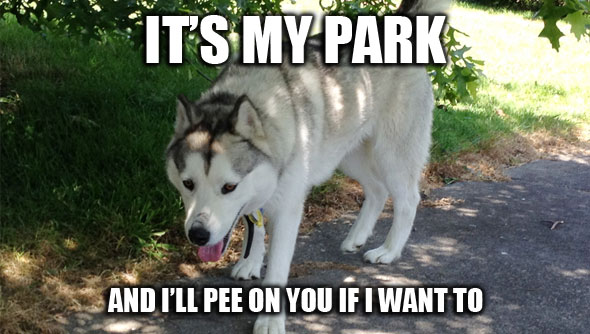
So there I was, lying down reading a book and enjoying the sunshine in a park between dog consultations, when I notice a lovely Husky wandering around. He said hello to my two dogs and I watched their interactions before continuing my reading. I sensed him near me and ignored him until I suddenly felt a little wetness spreading across my thigh and heard the tinkling sound of flowing water. To my amazement I found the Husky (in the photo above) peeing on my thigh. I immediately jumped up and he trotted off to play quite happily as if nothing had happened!
So why am I telling you all of this you may wonder? It's a little embarrassing – shouldn’t I want to keep it a secret? Well, the thing which really struck me after the initial shock is this: a dog who had all the room in the park to toilet decided to pee on me. Now, was it chance? Was it a mistake? Of course not. It was deliberate. He knew exactly what he was doing. This dog did not need “toilet training” which is the point I will try to clarify.
For want of a better word he was “marking”. After all I was in his territory as he lived very close by. I was on his ‘turf’! The dog was communicating with me in no uncertain terms that He was in charge of the area and those within it. The solution to a problem like this, which most people need, is very different – as I will explain.
Only this week I spoke to a lady who was beside herself. Her dog was 4 years old, and he had been toilet trained for years, however recently he had just started toileting in the house. And no amount of toilet training was helping. She had been to the vet and there was nothing wrong with him. In fact he would actually toilet on the grass and then come inside and finish off on the carpet. She could not understand it and was considering getting rid of the dog. Shortly after talking to her though, it became very clear to me that what was going on.
Lets look at the three main reasons a dog will toilet inside, then you will see where to focus your efforts…
1. In need of “toilet training”: they are not sure where to go
Another way to look at this is to simply say that they need more training. When a puppy is brought into the house we need to show them by taking them to the right area and using positive reinforcement when they go. Many puppies will toilet in the house for this reason, if you have a young dog especially under 6 months then this is most likely the reason that they are still making mistakes. Some situations may make it harder to train your dog or puppy, such as; it is raining, they do not like the cat door, or it is a long way to walk to get outside. However in principle this is still about working together to find a solution which works following the basic toilet training routine.
2. Physical reasons: medical
If you have an older dog, a dog on medication or one who may have a medical issue, get them checked out fully by a vet so that you can rule out this as the cause of problem.
3. “Marking”
Just like my ‘friend’ in the park, dogs will mark their territory. Dogs do this far more when they believe that they are the pack leaders. So if you have a dog who “knows” where they should toilet, but they choose to do it elsewhere, then this is the reason why.
Here are the main signs that suggest that this is the case
- Urinating inside on the bed or your clothes or possessions
- Dogs who have been toilet trained for a long time who suddenly start toileting inside (this does not include older dogs)
- Urinating inside the house even when the door outside is wide open
- Urinating inside whilst looking straight at you
- Dogs who come inside and then immediately finish toileting
- Dogs who toilet inside a lot when you are not there
So if you feel like your dog is toileting inside the house and yet they “know” where you want them to go then they are almost certainly marking – and toilet training is not going to fix it. The good news is that there is a solution. When YOU become the pack leader dogs tend to mark far less inside the house. That’s the solution and it is a fairly straightforward one. To find out how to become the pack leader visit my Video Training Membership Site, The Online Dog Trainer. www.theonlinedogtrainer.com. Other things that can help significantly is neutering male dogs and cleaning all marked areas with a strong enzymatic cleaner. So remember. If and when a dog pees on you, they do not need more toilet training!
The funny thing was that I realized just how much I love dogs, when after this lovely dog peed on me, I had no bad feelings towards him and ended up having a good play, which is when I grabbed his photo… I love dogs!
- Looking for additional dog training resources? Find out more about how I've trained over 77,000 dogs here!
- Have a puppy? Get started with my Puppy Coach training program now!
Enjoy being The Pack Leader today,
 .
.


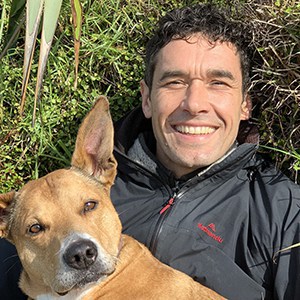

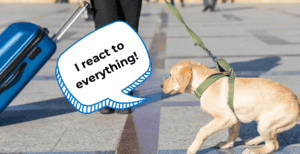
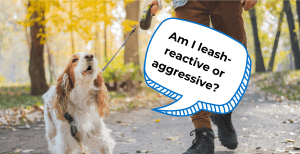
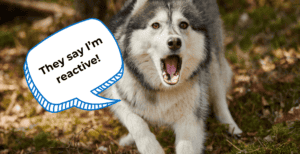
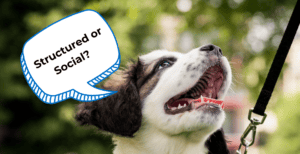
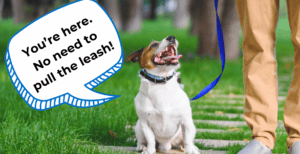
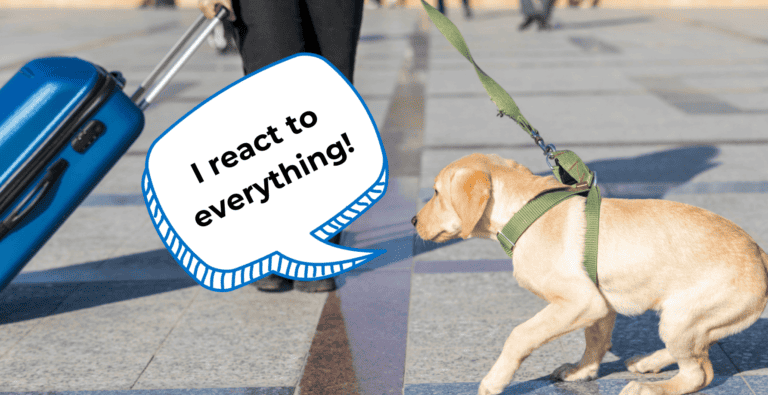
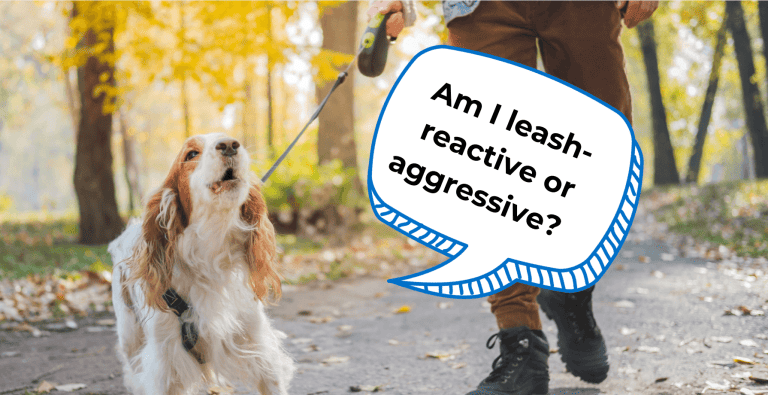
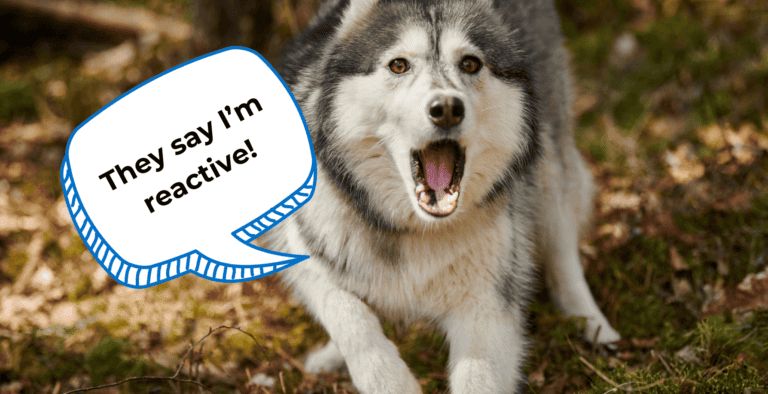

3 Responses
I have a dog about 3 years old my son could not take care of him anymore because he was peeing in the house so I took him in my house treated him like a puppy took him outside to pee I do have a doggie door and two other dogs he goes outside most of the time but when I’m not looking or home about once a week he will pee on something I give him love and attention just like the rest of them he is a part of my family I am redoing my home and afraid he is going to pee on my things I just don’t know what to do anymore
Anymore
Hi Donna,
When adult dogs toilet indoors it can be more of a behavioural issue, rather than a dog simply not knowing the correct procedure or not being able to hold on. Scent marking is a role that dogs can take on when they feel they hold some responsibility in their home, so the first step is to clear up any confusion around that belief. Going back to basics with toilet training, proactively taking your dog out and running him through the correct procedure, is also advised. When he is indoors try to restrict his access to a smaller area of your home as you will be able to keep a closer eye on him and he is less likely to toilet in an area he spends a lot of time in.
We do cover this issue more comprehensively on my membership website….maybe take a quick look…its a $1USD trial for 3 days…All the Best, Doggy Dan
From your input, it made sense why.